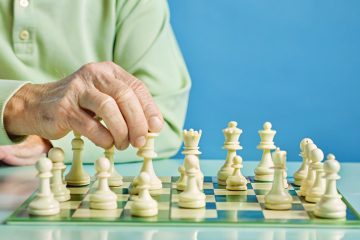Chess for Team Building: How Group Chess Activities Strengthen Relationships
Chess for Team Building is quickly emerging as an established and effective instrument to build cooperation and trust in working teams. More than a game of queens and kings, chess thus turns into a strategic battleground where co-workers unite, exchange, and grow together. Through the vehicle of guided group chess activities , teams can exchange precious interactions that facilitate clear thinking, enhance problem-solving abilities, and foster mutual respect.
Regardless of whether played by teams or as a team event, chess involves individuals to anticipate, rely on each other‘s capabilities, and come to a mutual decision—abilities all important to any working environment. With companies evermore searching for new and powerful ways to foster in-workplace collaboration, group chess is an unforeseen catalyst. They not only build team cohesion but also transform the way people interact and empower one another. Simply put, team building chess is not merely a game—it’s a formula for success.
Why Choose Chess for Team Building?
Chess for team building is not just shuffling pieces across a board—it’s a concentrated mental workout that exercises the brain to think, concentrates the mind to focus, and fosters successful teamwork. Why is chess such a great option for team-building events? Here are four excellent reasons:
-
Promotes Strategic Thinking
Chess prepares the mind to project ahead several moves. In the team environment, this causes the members to plan ahead strategically in situations and co-plan—qualities that directly benefit in improved team working and planning of projects. -
Builds Patience and Mental Endurance
Group chess activities require steady attention and guarded decision-making. This naturally breeds patience, tenacity, and a calm response to adversity—qualities that will benefit any team under pressure.
-
Encourages Mutual Respect
In chess, both players must respect their opponent‘s moves and strategies. Applied to the workplace, this respect establishes a culture of appreciation, where everyone’s work is valued. -
Fosters True Collaboration
By cooperative games or strategic management, chess enhances collaborative thinking. All teams must come to an agreement on approaches, trust ideas, and move forward with a mutual vision—vital pillars of any successful team.
Benefits of Chess for Team Building
1. Improved Communication Skills
In group chess activities, achievement hinges on articulate and thoughtful communication. As teammates deliberate plans, debate options, and settle moves in concert, they naturally acquire active listening and the ability to convey ideas lucidly. Not only does this sharpen interpersonal communication but also cultivates a more cohesive, receptive team culture—a priceless asset in any cooperative setting.
2. Enhanced Problem-Solving Abilities
Chess is, in essence, a forecasting and strategy game. As an activity for team building, it is transformed into a group problem-solving process. The players are required to analyze a number of possibilities, accommodate the strategies of the opponents, and work toward a shared solution. This shared analysis simulates real-world problems, and thus chess for team building is a good way to improve analytical and cooperative thinking.
3. Stronger Trust and Team Support
When chess is being played in a team, all moves are everybody’s responsibility. Team members ought to trust each other’s judgment, appreciate diversity of thought, and support even the most creative ideas. This fosters a culture of trust for one another and psychological safety so that individuals have no fear of contributing to the team and are not afraid of judgment.
4. Fosters Healthy and Constructive Competition
Group chess activities involve a balanced form of competition—one that challenges members of the group to give their best in a respectful environment. In contrast with pressure–laden environments, chess encourages critical thinking and resolve in an atmosphere of respect. This kind of competition induces motivation and growth mindset, essential for teams looking to enhance as a group.
5. Promotes Adaptability and Strategic Flexibility
Types of Team-Based Chess Activities
Bringing chess into team-building activities is not dependent on significant chess expertise. The structure is what allows all skill levels of players to play, collaborate, and learn from each other. Listed below are some of the top group chess activities for creating teamwork and communication.
1. Simultaneous Chess Matches
In a simultaneous game, one or more experienced players—typically team leaders or mentors—play against multiple individuals or groups at the same time. This format offers an active learning setting where players observe multiple strategies unfolding. It is particularly beneficial for less experienced players, who learn from their own games as well as others’ actions. This format not only builds confidence but also encourages observational learning and strategic thinking.
2. Collaborative Chess Games
Here, individuals play as a combined team, advising and voting on every move as one. Before arriving at a decision, members brainstorm, consider possibilities, and aim towards commonality. Designations like “strategist,” “defender,” or “analyst“ can be given to plan coordination and ensure that every member is involved. The activity enhances communication, reinforces group problem-solving, and models real-life circumstances where team alignment is paramount.
3. Group Chess Puzzles
Solving team chess puzzles places participants in a position where they must work together to arrive at the same solution—e.g., discovering a forced checkmate in a given number of moves. This setup promotes logical thinking, creativity, and constructive argument. Each puzzle becomes an easygoing brainstorming environment where participants can try out different approaches while sharpening their critical thinking and coordination skills.
4. Blindfold Chess for Communication Skills
Practical Tips for Implementing Chess for Team Building
For maximum gains of employing chess as a tool for team building, effective execution of the activity is crucial. The following research-backed tips will help you deliver effective and interactive team-building experience through chess:
1. Tailor Activities to the Group’s Skill Level
Presenting chess to a team, it‘s important that care is given to variations in levels of experience. To some members of the team, chess could be a completely new game, but others are experienced players. Beginning with fundamentals—the basic rules and simple strategy—is guaranteeing that everyone will not fall behind. Gradually increasing the level of complexity of activities can sustain the level of challenge appropriate for everyone so that both beginners and experts remain interested. Cognitive psychology facilitates this by noting that skill-congruent challenges promote learning and teamwork by cultivating a growth mindset.
2. Encourage Open Discussion and Idea Sharing
Chess, especially in team events, is dependent on communication. Allowing free flow of speech during planning sessions enables all members to express their opinions and actively participate in decision-making. Organizational psychology studies show that participative decision-making improves teamwork and reinforces group cohesion. The practice not only improves communication but also makes the team members feel valued and respected and increases their confidence in a culture of trust.
3. Rotate Roles Within the Team
In an effort to facilitate full participation and prevent the use of any single individual‘s expertise, rotate roles such as “analyst,” “strategist,” or “tactician“ within the team. Rotation provides a chance for all to be a leader and a part of the team’s success. Research on role rotation in teams reveals that such practices promote team adaptability, establish empathy, and allow individuals to see the complexity of many different points of view. It also prevents burnout by not allowing any one player to be overburdened with responsibility.
4. Keep Sessions Short and Focused

Success Stories: Real-World Examples
Several organizations have also used chess as a team-building activity. For example:
• Tech Companies: Technology businesses often utilize chess to enhance employees’ strategic thinking. Technology companies find that chess keeps the mind sharp and improves decision-making skills. This has led to enhanced collaboration and better stress problem-solving.
• Educational Institutions: Some institutions use chess as a tool to develop a cooperative atmosphere among staff so that teachers can build camaraderie and enhance collaboration towards academic goals. Such cooperative environment has been shown to improve overall productivity and create a more cohesive team culture.
• Corporate Teams: Team chess tournaments and team chess activities are typical in corporate team-building retreats. Players react with increased cohesiveness and more rapport among teammates. Team-building activities lower interpersonal barriers as well as enhance teamwork skills.
The Psychology Behind Chess and Team Dynamics
Psychologists have been studying chess for decades, learning about its benefits for mental toughness, focus, and intellectual development. Group activity with chess capitalizes on these benefits by giving participants enhanced focus and a growth mindset, where they learn from mistakes rather than fearing failure. When team members have such mindsets, they become more resilient and better equipped to handle adversity in the workplace. The structured nature of chess, along with its need for critical thinking, promotes mental toughness, patience, and staying calm under pressure, all traits required to thrive in a team environment.
Tips for Facilitating a Team Chess Workshop
For those who want to conduct a chess-themed team-building session, below are some more suggestions:
-
Plan Ahead: Prepare puzzles or scenarios suitable to the expertise level of the team, and employ electronic boards, which are simple to install. This entertains all from the beginning, no matter how well they know the game.
-
Encourage Reflection: After each activity, ask participants to reflect on what they have learned about themselves and their team members. Reflection helps participants internalize key lessons about teamwork and decision-making.
-
Reward Participation:Offer small rewards for participation to sustain high morale and encourage participation. Reward individual effort and teamwork to reinforce desired behavior and motivation.

Chess is more than just a game—it’s a transformative tool for building stronger, more cohesive teams. Whether you’re working in a tech company, an educational institution, or a corporate setting, incorporating group chess activities into team-building exercises can lead to improved communication, enhanced problem-solving abilities, and stronger interpersonal bonds. By promoting critical thinking, collaboration, and trust, chess helps teams perform better under pressure and face challenges with a unified approach.
So, why not take the next step and try chess in your next team-building event? Whether you’re a beginner or a seasoned player, there’s a version of chess for team building that can suit your team’s skill level and goals. Have you used chess to strengthen your team dynamics? Share your experiences and thoughts in the comments below—let’s talk about how this classic game is helping teams thrive in today’s fast-paced world!



0 Comments